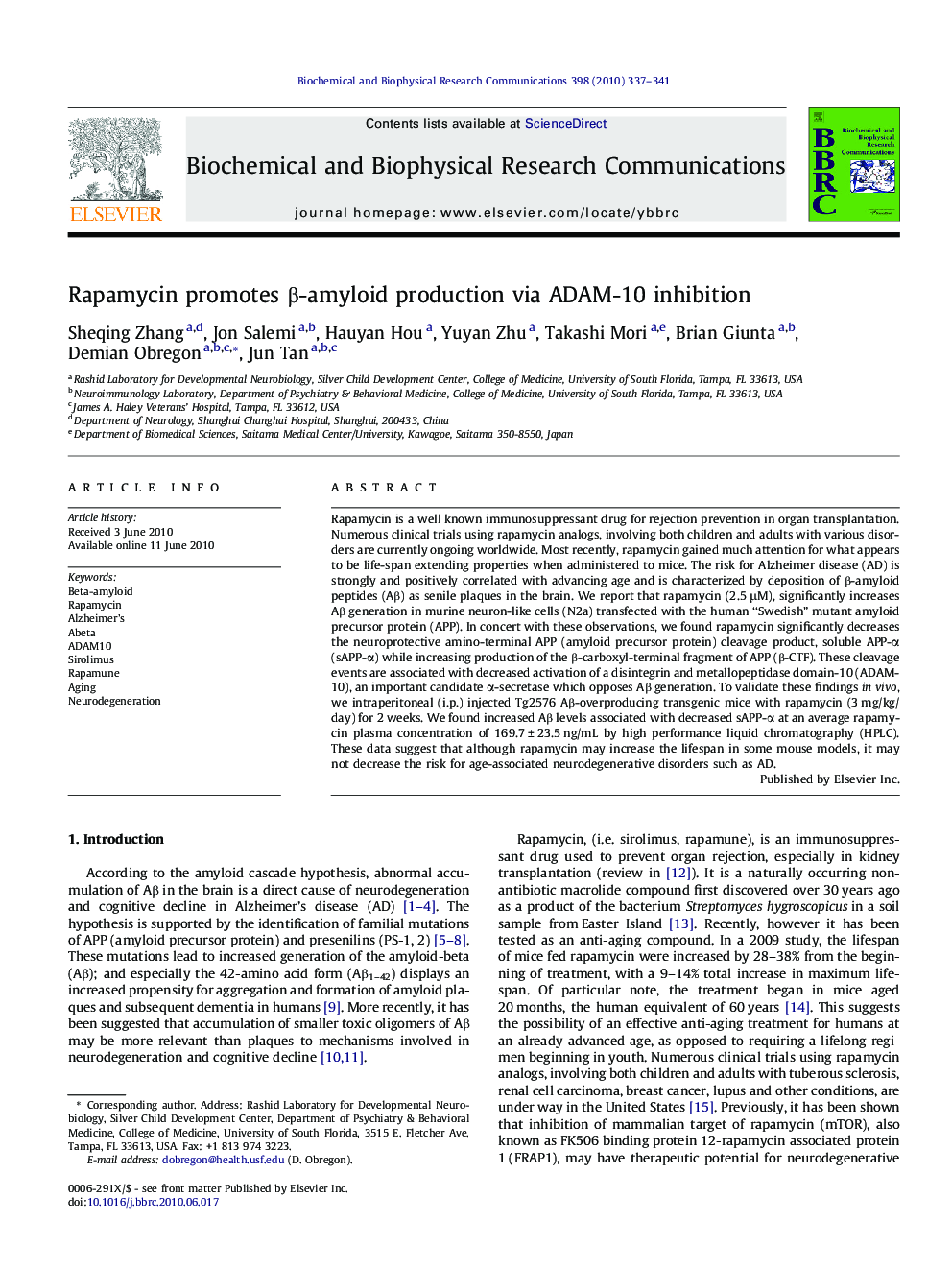| کد مقاله | کد نشریه | سال انتشار | مقاله انگلیسی | نسخه تمام متن |
|---|---|---|---|---|
| 1931544 | 1050557 | 2010 | 5 صفحه PDF | دانلود رایگان |

Rapamycin is a well known immunosuppressant drug for rejection prevention in organ transplantation. Numerous clinical trials using rapamycin analogs, involving both children and adults with various disorders are currently ongoing worldwide. Most recently, rapamycin gained much attention for what appears to be life-span extending properties when administered to mice. The risk for Alzheimer disease (AD) is strongly and positively correlated with advancing age and is characterized by deposition of β-amyloid peptides (Aβ) as senile plaques in the brain. We report that rapamycin (2.5 μM), significantly increases Aβ generation in murine neuron-like cells (N2a) transfected with the human “Swedish” mutant amyloid precursor protein (APP). In concert with these observations, we found rapamycin significantly decreases the neuroprotective amino-terminal APP (amyloid precursor protein) cleavage product, soluble APP-α (sAPP-α) while increasing production of the β-carboxyl-terminal fragment of APP (β-CTF). These cleavage events are associated with decreased activation of a disintegrin and metallopeptidase domain-10 (ADAM-10), an important candidate α-secretase which opposes Aβ generation. To validate these findings in vivo, we intraperitoneal (i.p.) injected Tg2576 Aβ-overproducing transgenic mice with rapamycin (3 mg/kg/day) for 2 weeks. We found increased Aβ levels associated with decreased sAPP-α at an average rapamycin plasma concentration of 169.7 ± 23.5 ng/mL by high performance liquid chromatography (HPLC). These data suggest that although rapamycin may increase the lifespan in some mouse models, it may not decrease the risk for age-associated neurodegenerative disorders such as AD.
Research highlights
► Rapamycin is a well known drug for rejection prevention in organ transplantation.
► Rapamycin appears to have life-span extending properties in mice.
► However here we report that rapamycin increases Ab generation and inhibits ADAM-10.
► Rapamycin may increase risk for age-associated neurodegenerative disorders such as AD.
Journal: Biochemical and Biophysical Research Communications - Volume 398, Issue 3, 30 July 2010, Pages 337–341